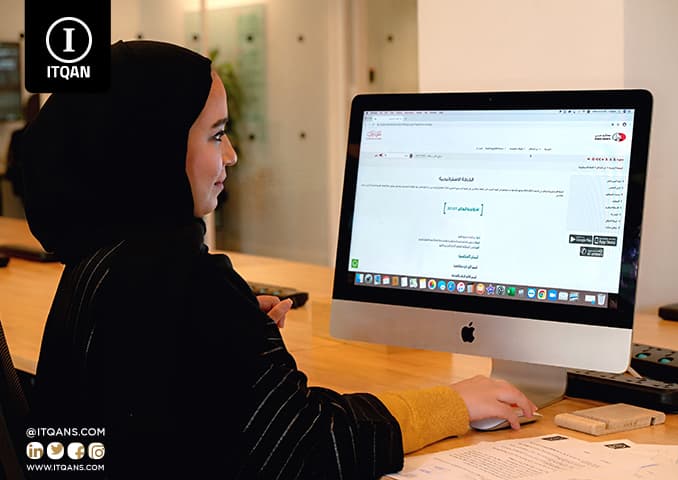Dubai is considered one of the most prominent investment destinations in the world, thanks to its dynamic economic environment, advanced infrastructure, and business-friendly legal system. Opening a company in Dubai represents a great opportunity for investors and entrepreneurs looking to tap into global markets and achieve success in one of the most vibrant and innovative cities in the world.
The process of setting up a company in Dubai begins with determining the type of business entity that best suits the business goals and needs. Investors can choose between several types of companies, such as limited liability companies (LLC), joint stock companies, and companies in free zones. Each option comes with a set of benefits and legal requirements that affect the company’s structure and operations.
One of the most prominent advantages of establishing a company in Dubai is access to a huge global market, thanks to the city’s strategic location as a major trading hub between East and West. In addition, Dubai provides a favorable business environment that includes attractive tax exemptions, flexible laws, and simplified registration procedures, making it easier for new companies to start their business quickly and effectively.
Dubai’s free zones also provide unique opportunities for foreign investors, such as full ownership of the company without the need for a local partner, tax exemptions on profits and revenues, as well as customs facilities. There are many options available to investors depending on the type of business and location they choose, allowing them to make the most of the opportunities available.
In conclusion, establishing a company in Dubai is not only a strategic step towards entering a global market, it is an opportunity to invest capital in an innovative and thriving environment. Understanding the steps and requirements needed to start this business can have a significant impact on the success and sustainability of the business in this growing market.

جدول المحتوى
ToggleHow to create a company in Dubai
Establishing a company in Dubai requires following a set of organized steps. Below is a comprehensive guide to the steps for establishing a company in Dubai:
- Determine the type of company and activity: Determine the type of company you wish to establish, such as a limited liability company (LLC), a private joint stock company, a free zone company, a branch of a foreign company, or an offshore company.
Choose the business you wish to practice, as this affects the type of license required. - Choosing a company name: Choose a business name that is consistent with local laws. Make sure the name is not already registered and does not conflict with other names or trademarks.
- Preparing legal documents: Prepare the necessary documents such as the articles of association, articles of association, and passports for the founders and directors.
If you will need a local partner, you must prepare documents confirming the partnership. - Choose an office location: Rent an office in Dubai. The office can be physical or virtual, depending on the type of company and the requirements of the registration body.
- Submitting a registration application: Submit a company registration application to the relevant registration authority such as the Dubai Department of Economic Development or the free zone authority of your choice.
Submit all required documents and ensure that all requirements are met. - Payment of fees: Pay the fees required to register the company and obtain the license. These fees usually include registration fees, licensing, and any additional fees.
- Obtaining the necessary approvals: If your business requires special approvals or permits (such as health or educational activities), obtain these approvals from the relevant authorities.
- Receiving the commercial license: After completing all procedures and paying the fees, the Authority will issue the commercial license. You can receive the license from the Authority or via email.
- Chamber of Commerce and Tax Registration: Register your company with the local Chamber of Commerce if required. Also register with the tax authorities if this applies to your activity.
- Employee insurance (if necessary): If you will employ employees, obtain the necessary work and residency visas, and provide medical and social insurance.
- Open a bank account: Open a company bank account at a local bank. You will need to submit your business license, articles of incorporation, and other required documents.
- Comply with local laws: Make sure you comply with all local laws and regulations related to your business, including any environmental or health requirements.
Steps to obtain a commercial license in Dubai
Obtaining a business license in Dubai requires following a series of organized steps. Here is an overview of the basic steps to obtain a business license:
- Determine the type of business activity: Determine the business activity you wish to practice, as the type of license varies based on the activity (commercial, industrial, professional, etc.).
- Choosing a company name: Choose a business name that is consistent with local laws. Make sure the name is not already registered and does not conflict with other names or trademarks.
- Preparing the required documents: Collect the necessary documents to register the company, which may include passports, proofs of address, biographies of founders and directors, articles of incorporation, and articles of association.
- Preparing the Memorandum of Association and Articles of Association: Preparing legal documents such as the Memorandum of Association and Articles of Association of the company. This may require consulting an attorney to ensure compliance with local laws.
- Submitting a registration application: Submit a company registration application to the relevant registration authority in Dubai, such as the Department of Economic Development or Free Zone Authority, depending on the type of company and location.
- Office Leasing: Get a lease for a commercial office. The office can be physical or virtual, depending on the authority’s requirements.
- Approval of relevant authorities: If the business activity requires special approvals or permits, such as health or educational activities, obtain the necessary approvals from the relevant authorities.
- Payment of fees: Pay the fees required to register the company and obtain a commercial license. These fees include registration fees, licensing, and any additional fees that may be required.
- Receiving the license: After completing all procedures and paying the fees, the registration authority will issue the commercial license. You can receive the license from the Authority or receive it via e-mail or regular mail.
- Registration with chambers of commerce and taxes: After obtaining a license, register your company with the local chamber of commerce and with the tax authorities if required. This may require submitting additional documents.
- Employee insurance (if necessary): If you will be hiring employees, obtain the necessary work visas and residence permits, and insure employees as required.
Types of companies that can be established in Dubai
Here is a table showing the types of companies that can be established in Dubai, with an overview of each type and the requirements for establishing it:
| Type | Description | Features | Basic requirements |
|---|---|---|---|
| Limited Liability Company (LLC) | A company that allows foreign ownership of up to 100% in some free zones, while in other areas it requires a 51% local partner. | Personal liability protection, flexibility in corporate structure, suitable for diverse business activities. | Articles of association, local partner in some cases, office, visas, commercial registration. |
| Private Joint Stock Company | A company whose shares are traded among a limited group of individuals or entities, and requires at least 3 shareholders. | It provides asset protection, flexibility in distributing profits, and the possibility of attracting investors. | Memorandum of association, articles of association, office, visas, commercial registration, approval of the concerned authorities. |
| Public Joint Stock Company | A company whose shares can be traded on public financial markets, and requires a minimum number of shareholders of 10. | The possibility of raising large capital, trading company shares in financial markets, and increasing the company’s reputation. | Memorandum of association, articles of association, office, visas, commercial registration, approval of the relevant authorities, listing on the stock exchange. |
| Branch of a foreign company | A branch of an international company located abroad that can carry out the same activity as the parent company in Dubai. | Allows international companies to benefit from the local market, can reflect the reputation of the parent company. | Parent company registration documents, articles of incorporation, office, visas, commercial registration. |
| Free zone company | A company established in Dubai free zones benefits from benefits such as full foreign ownership and tax exemptions. | Full foreign ownership, tax exemptions, simplified registration procedures, flexible working environment. | Articles of association, office in the free zone, visas, registration fees, commercial registration. |
| Offshore company | A company registered in special territories such as the Cayman Islands or the British Virgin Islands, and carrying out international business activities. | Tax exemptions, asset protection, flexibility in business management, data confidentiality. | Articles of Association, legal documents, virtual office, visas, registration fees. |
| Partnership company | A company established between two or more partners, and it can be a limited partnership or a general partnership. | Ease of establishment, distribution of profits based on partnership, suitability for small projects. | Partnership contract, commercial registration, office, visas, specific legal requirements. |
Requirements and costs vary based on the type of company and location you choose.
Documents required to establish a company in Dubai
Establishing a company in Dubai requires submitting a set of basic documents, which may vary slightly based on the type of company and location. Here is a list of general documents required to establish a company in Dubai:
- Passports: Colored and clear copies of the passports of all founders, directors and shareholders. Passports must be valid.
- Address Proofs: Documents proving the current residential address of founders and directors, such as utility bills (electricity, water, gas) or statements from the bank.
- CVs: Recent CVs of founders and directors, including details about their professional backgrounds and work experiences.
- Registration Form: The company’s registration form, which is filled out and submitted to the relevant registration authority in Dubai. The form includes information about the business activity, legal structure, and names of founders.
- Business Plan: In some cases, a business plan may be required that details the business and future plans, including the company’s goals and strategies.
- Memorandum of Association and Articles of Association: Legal documents that include the Memorandum of Association and Articles of Association of the company. These documents define the company’s structure, objectives, and management system.
- Choosing a company name: A list of suggested names for the company, specifying the final name you wish to register. The name must comply with local requirements and laws.
- Office Rental: Guide to renting an office in Dubai or using virtual office services. May require submission of lease or proof of office location.
- Certificates of good standing: Some entities may require the submission of certificates of good standing for founders and directors. These certificates can be obtained from the local authorities in the home country.
- Proofs of payment: Proofs of payment of the fees required to register the company and obtain a license. These fees include registration fees, licensing, and any additional fees that may be required.
- Additional documents: Depending on the type of business and the requirements of the registration body, additional documents may be required such as licenses for specialized activities or industrial licenses.

Fees associated with setting up a company in Dubai
When setting up a company in Dubai , there are a range of associated fees that need to be taken into consideration. These fees vary based on the type of company, its location, and the type of activity. Here’s an overview of the basic fees you may face:
- Registration and licensing fees: Includes fees related to registering the company and obtaining a commercial or industrial license. This fee is usually paid when submitting the registration application and varies based on the type of activity and the size of the company.
- Office rental fees: Includes the cost of renting a commercial office in Dubai. These fees can include the annual rent for the physical office or the cost of virtual office services. Fees vary based on office location and size.
- Legal incorporation fees: include the costs of preparing and documenting the company’s articles of incorporation and articles of association. These costs may also include legal services to ensure compliance with local laws.
- Visa Fees: Includes fees associated with obtaining work and residency visas for founders, directors and employees. It may also include costs associated with medical and social insurance.
- Additional Services Fees: May include fees for additional services such as printing, translation, and attestations necessary to complete the registration process.
- Renewal fees: Includes the company’s annual license and contract renewal fees, which are usually paid on an annual basis or according to the schedule specified by the registration body.
- Other fees: Other fees may include any additional costs related to obtaining business licenses or verifying necessary certificates.
In conclusion of the discussion about establishing a company in Dubai , it becomes clear that this city offers an ideal investment environment for investors and entrepreneurs. Thanks to its strategic location as a link between East and West, a sophisticated legal system, and modern infrastructure, Dubai offers endless opportunities to establish and grow a business.
Dubai is a global center for business and trade, providing an environment that supports and encourages innovation and growth. Free zones in Dubai allow foreign investors to enjoy full business ownership, in addition to tax exemptions and customs facilities. At the same time, non-free zones also offer valuable opportunities, with certain requirements including a local partner in some cases.
The company establishment journey begins with clear steps that include choosing the type of company and commercial activity, determining the company name, and preparing the necessary documents. After that, investors must apply for licenses, open bank accounts, and obtain work and residency visas. Although this process may require some time and effort, the results are worth it.
The most frequently asked questions about establishing a company in Dubai
What special licenses may companies need in Dubai?
Companies may need special licenses depending on the type of activity, such as health, educational, or industrial licenses.
Is it possible to convert a company from one type to another after registration?
Companies can be converted from one type to another, but this requires legal procedures and amendments to documents and licenses.
What are the advantages of setting up a company in Dubai?
Advantages include full foreign ownership of free zones, tax exemptions, a thriving business environment, and global marketing strategies.
Can companies open a bank account in Dubai?
Yes, companies can open a bank account in Dubai. Registration, licensing, and other papers are required.
What are the conditions for renewing a commercial license?
Terms include paying fees, updating information, and renewing legal documents as needed.
Is it possible to obtain financing for new companies in Dubai?
Yes, financing can be obtained from banks, investors, or government support programs designated for startups.


















